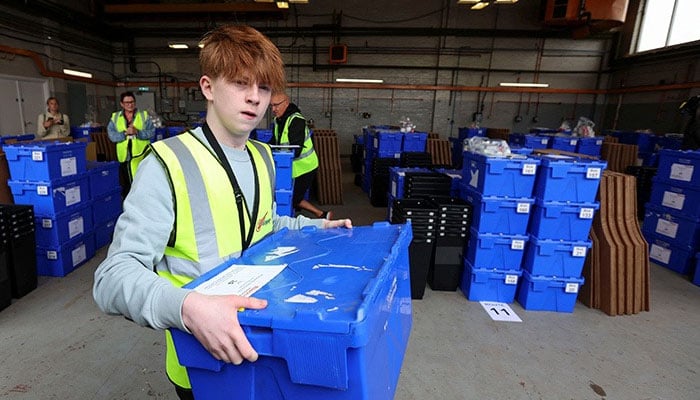UK General Election: How does it work?
In general elections, voters cast their votes to elect MP to represent them in House of Commons
July 03, 2024

The voters of the United Kingdom will head to the polls on Thursday (July 4) to elect a new government as the previous administration has completed its term.
UK elections are held following the dissolution of Parliament. Under the Dissolution and Calling of Parliament Act 2022, parliamentary terms last five years unless dissolved earlier by the British monarch at the prime minister's request. The polling day is not fixed by law but occurs 25 working days after Parliament is dissolved.
The UK is divided into 650 constituencies. In a general election, voters in each constituency cast their votes to elect a Member of Parliament (MP) to represent them in the House of Commons. The candidate with the most votes in each constituency becomes the MP for that area, securing a seat in the House of Commons.
This system favours the two largest political parties, the Conservative Party and the Labour Party, as they have strong regional support, giving them a higher chance of winning compared to smaller parties with weaker regional support. The party with the most constituencies forms the government with the British Monarch's approval.
If no party secures a majority of 326 seats in the House of Commons, a government can be formed either independently or with the support of another party. Once the votes are counted and the results are clear, King Charles III will invite the leader of the party with the most MPs to form a government and become the Prime Minister. The party with the second-highest number of MPs will become the opposition.
The new UK Parliament will convene on July 9 for the oath-taking ceremony and the election of the Speaker. This will be followed by the State Opening of Parliament, where the new government will outline its agenda in the King’s Speech.











